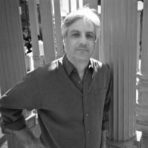If the pandemic has taught me any lesson, it’s to take nothing for granted; the result is not that I don’t dream anymore but that I dream in a different way. Delta, Omicron, breakthrough infections—what they reaffirm is our utter inability to control the environment in which we live.
And yet, this does not mean we can’t affect things. This doesn’t mean we have no agency at all. Rather, it means that we have no choice but to embrace the conditional, to learn to see uncertainty as neither burden nor potential, but as the inevitable responsibility of being alive. Let’s just see what happens, I have begun repeating, over and over, every day. You can read that as either a mantra or a reality check, although for me, it has taken on the weight of an affirmation, or even, in some elusive way, a secular sort of prayer.
The notion of seeing what happens, of course, is one with which every writer in this issue is familiar; how else, after all, does art or literature get made? This is not a matter of disengagement or disconnection; it is not about surrender or retreat. Once, thirty or so years ago at a family dinner, my mother’s older sister lit into my wife and me, both young artists, for being too idealistic to understand the world. Artists live in a magic cave, she said, effectively dismissing us. A magic cave? I wish the cave was magic, I might have said or should have said. If I’m going to be honest, however, I must admit that I remained mute.
And yet, here is what I was thinking: In what magic cave would I spend so much time worrying about money, about the bills we were struggling to keep up with, about how to make the rent? This, of course, is the condition—or one of them—under which we work, our creativity always balanced by, and infused with, practical concerns. We must seek, or carve out, time for our expression; we must commit to art if we want art to commit to us. This is what is so exciting to me about the pieces in this fifth issue of Air/Light: all have been produced by artists, both emerging and established, who share that level of allegiance, not only to their own work (although that, as well) but also to the conversation, the colloquy that art necessarily provokes.
Something similar might be said about a new initiative at USC, which Air/Light is thrilled to help introduce with this issue: The Chowdhury Prize in Literature. Presented in conjunction with the Subir and Malini Chowdhury Foundation, The Kenyon Review, and Kenyon College, the prize is an annual international mid-career award for exceptional writers. It comes with a $20,000 purse. The inaugural recipient, the Greek short story writer Christos Ikonomou, embodies the commitment necessary to be an artist. His fiction focuses on working people caught in the vice grip of austerity while, at the same time, existing in the space between public and private—or more accurately, in a landscape where the public can’t help but intrude upon the private, a zone of the interior and the exterior.
The Chowdhury Prize will be presented at a ceremony on the USC campus on April 21, 2022, and Air/Light is delighted to be publishing a short story in this issue by Ikonomou, translated by the remarkable Karen Emmerich.
Let’s just see what happens, indeed.
— David L. Ulin, Editor


